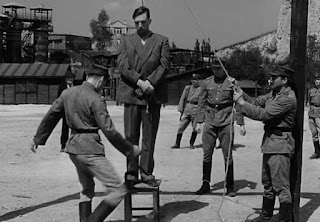On this day in 1944, during the Pacific Campaign of World War II, members of the U.S. Marine Corps stormed the beaches of the strategically significant Japanese island of Saipan
On this day in 1944, during the Pacific Campaign of World War II, members of the U.S. Marine Corps stormed the beaches of the strategically significant Japanese island of Saipan, with a goal of gaining a crucial air base from which the U.S. could launch its new long-range B-29 bombers directly at Japan’s home islands.
Facing fierce Japanese resistance, Americans poured from their landing crafts to establish a beachhead, battle Japanese soldiers inland and force the Japanese army to retreat north. Fighting became especially brutal and prolonged around Mount Tapotchau, Saipan’s highest peak, and Marines gave battle sites in the area names such as “Death Valley” and “Purple Heart Ridge.”
When the U.S. finally trapped the Japanese in the northern part of the island, Japanese soldiers launched a massive but futile banzai charge. On July 9, the U.S. flag was raised in victory over Saipan.
The brutal three-week Battle of Saipan resulted in more than 3,000 U.S. deaths and over 13,000 wounded. For their part, the Japanese lost at least 27,000 soldiers, by some estimates. On July 9, when Americans declared the battle over, thousands of Saipan’s civilians, terrified by Japanese propaganda that warned they would be killed by U.S. troops, leapt to their deaths from the high cliffs at the island’s northern end.
The loss of Saipan stunned the political establishment in Tokyo, the capital city of Japan. Political leaders came to understand the devastating power of the long-range U.S. bombers.
Furthermore, many of Saipan’s citizens were Japanese, and the loss of Saipan marked the first defeat in Japanese territory that had not been added during Japan’s aggressive expansion by invasion in 1941 and 1942. Worse still, General Hideki Tojo (1884-1948), Japan’s militaristic prime minister, had publicly promised that the United States would never take Saipan. He was forced to resign a week after the U.S. conquest of the island.











Comments
Post a Comment